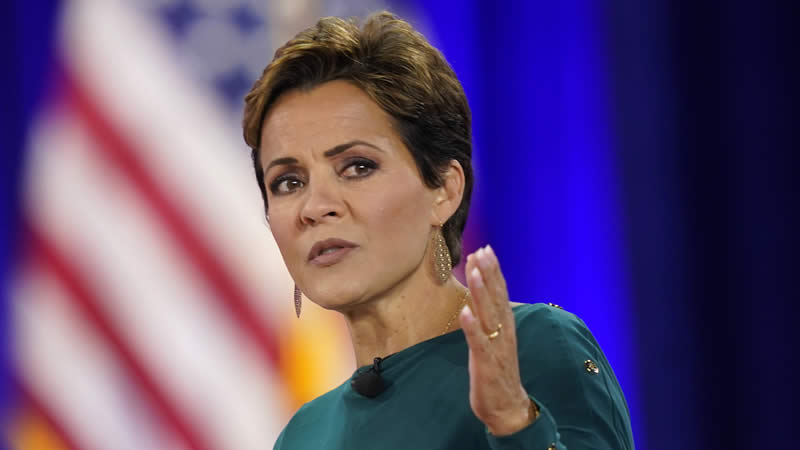Kari Lake, a Trump-endorsed candidate who lost the Arizona gubernatorial race, faced a challenging day in the appellate court in Tucson as her legal team attempted to challenge her 2022 election defeat. Legal analysts Paul Weich and Tom Ryan, who closely followed the proceedings, reported that the hearing did not proceed favorably for Lake.
During the session, Kurt Olsen, Lake’s attorney who has been under scrutiny by the bar for his actions related to election litigation, struggled to convince the three-judge panel. The appellate judges rigorously questioned Olsen, pressing him to clarify why he believed the trial judge had made errors in dismissing Lake’s lawsuit.
The appellate court, constrained by its role, reiterated to Olsen that it could not accept new evidence but could only review the appropriateness of how previously submitted evidence was handled. The judges frequently asked Olsen to substantiate his claims, particularly when he alleged that the trial judge had ignored pertinent evidence, reports Arizona Mirror.
One of the judges pointedly asked, “How do we know [the trial judge] disregarded the evidence?” Olsen’s responses, which included attempts to introduce what he called “newly discovered evidence,” did not seem to alleviate the court’s skepticism, highlighting a fundamental misunderstanding or disregard for the appellate process.
Adding to the complexity of the hearing, Olsen echoed a controversial claim often repeated by Lake, suggesting that the Maricopa County Board of Supervisors, which is majority-Republican, had somehow tipped the scales against Republican voters on Election Day. Tom Ryan, capturing the absurdity of the claim in his commentary, expressed exasperation at the logic presented by Olsen.
Despite these courtroom challenges, Kari Lake has consistently refused to concede her defeat to Katie Hobbs, who served as Secretary of State before her election as governor. Lake has voiced multiple allegations, suggesting without substantial proof that the election was stolen from her. Her most persistent complaint centered on technical glitches with tabulators on Election Day in several Phoenix-area precincts.
Despite these claims, there was no evidence that these glitches prevented votes from being counted, as alternative voting methods were provided. The Republican-dominated Arizona Supreme Court has declined several times to review Lake’s case, citing a lack of substantial evidence to warrant such a review. This series of legal setbacks underscores the ongoing tensions in Arizona’s political landscape, where allegations of election irregularities have continued to stir controversy and debate.
Lake’s persistence in challenging the election results, despite repeated judicial rebuffs, reflects a broader national trend among some factions of the Republican Party. These challenges have not only deepened political divisions but have also prompted a reevaluation of electoral integrity and security measures. As this legal drama unfolds, it remains a significant chapter in the continuing narrative of America’s contentious political environment post-2020 election.

